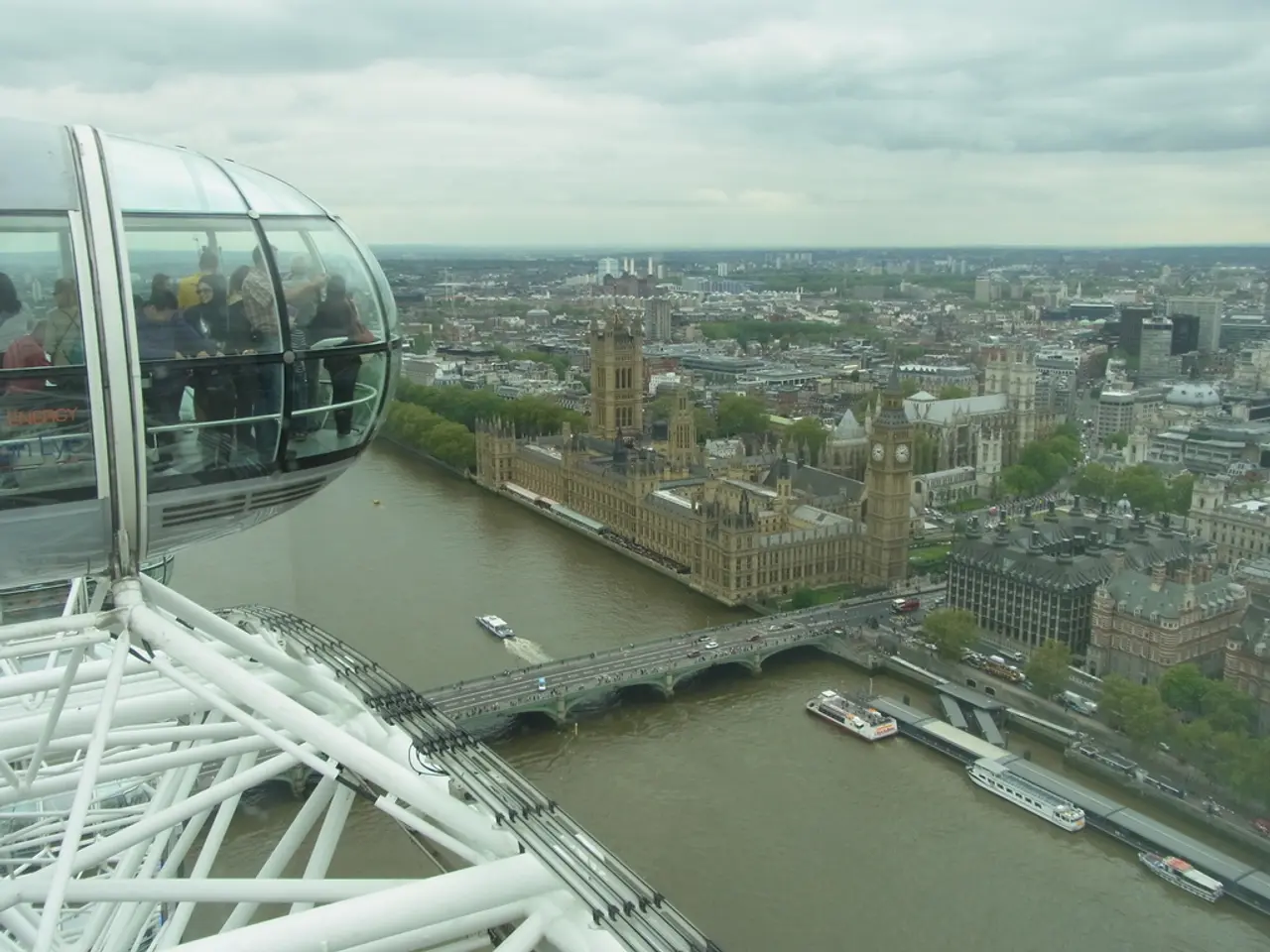Dropping consumer confidence observed in July due to potential autumn increases in taxes
UK Consumer Confidence Plummets Amid Economic Uncertainty
In a worrying development, consumer confidence in the UK economy has taken a significant hit, according to recent data. The GfK Consumer Confidence Index, which measures consumer sentiment, dropped to -19 in July 2024, down from -18 in June and significantly lower than the -13 recorded in July 2023.
Neil Bellamy, the consumer insights director at GfK, an NIQ Company, finds the data "worrying" and suggests that some people may be sensing "stormy conditions ahead".
The decline in consumer confidence is primarily due to growing concerns about the economic outlook, particularly fears of rising inflation and possible tax increases in the upcoming Autumn Budget. Rising inflation, particularly for food, has increased the cost of living, with price pressure contributing to current and future inflation.
Expectations for the general economic situation over the next 12 months have dropped significantly, falling from -28 in June to -29 in July 2024. Consumers are showing a cautious "wait-and-see" attitude, with key measures on personal finances, the economy, and purchase intentions remaining flat.
The drop also reflects concerns about tax rises in the Autumn Budget, as Finance Minister Rachel Reeves is expected to raise taxes again following welfare spending changes. Consumers are responding by saving more and reducing spending due to economic uncertainty.
The British Retail Consortium's sentiment index also dropped in July, reflecting the declining consumer confidence. With the UK economy shrinking for the second consecutive month, it is little surprise that consumer confidence fell in July, according to Helen Dickinson, chief executive of the British Retail Consortium.
The hole in the government finances is likely to be plugged by a combination of freezing income tax bands and limits on cash ISAs. The Bank of England has been urged to hold interest rates in August to prevent further economic instability.
In summary, the decline in consumer confidence is driven by economic uncertainty related to inflation pressures, tax rise speculation, and prospective worsening of economic conditions, causing consumers to adopt a cautious approach and increase savings while reducing spending intentions. This cautious approach is likely to have a significant impact on the retail sector, as consumers cut back on non-essential spending.
- In response to the economic uncertainty, consumers are increasingly focusing on personal-finance management, saving more and reducing spending due to potential tax increases and rising inflation.
- Given the drop in consumer confidence and the impending Autumn Budget, where Finance Minister Rachel Reeves is expected to raise taxes, there might be a significant impact on the financial sector, as individuals and businesses reassess their spending and investment strategies.




